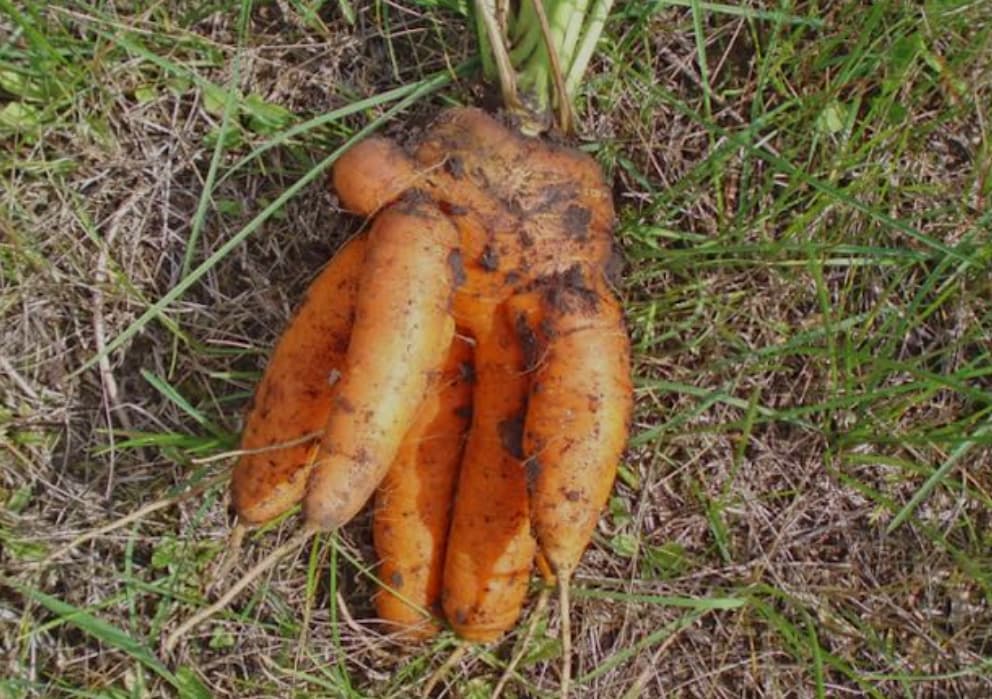Why are some of my carrots forking and how can I prevent it?
Forking in carrots typically occurs when the growing taproot encounters obstacles or stress. Carrots grow best in loose, well-drained soil, hard soil or small rocks can force the root to split. Too much nitrogen from fresh manure or fertilizer encourages foliage growth but can lead to root deformities, causing forking.
Roots that are damaged by weeding or pests often fork as they attempt to heal and regrow, also carrots planted too close together may face competition for space, causing their roots to grow irregularly. Lastly, Fluctuations between dry and overly wet conditions can stress the roots
To prevent your carrots from forking, follow these tips:
1.Ensure that the soil is loose, well-drained, and free of rocks or debris. Dig down at least 12–16 inches to break up compaction.
2.Carrots prefer sandy soil over heavy clay. Amend the soil with sand or compost if necessary.
-
Use well-aged compost or balanced fertilizers instead of fresh manure, which is high in nitrogen. Opt for fertilizers with a higher proportion of phosphorus and potassium to support root development.
-
Thin carrots early, leaving at least 2–3 inches between each plant. This reduces competition for space and nutrients.
-
Avoid cycles of drying out and heavy soaking. Drip irrigation can help maintain consistent watering. Maintain even moisture in the soil to prevent stress.
-
Growing in raised beds or deep pots with pre-prepared soil reduces the risk of encountering compacted layers or rocks.
-
Avoid damaging roots during weeding or thinning, as even slight injuries can cause forking. Use gentle methods when working around young plants.
